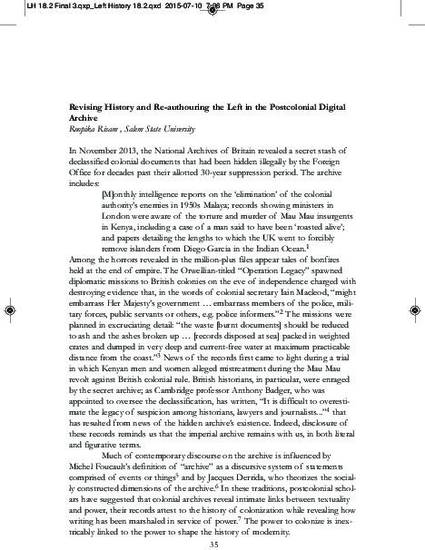
In November 2013, the National Archives of Britain revealed a secret stash of declassified colonial documents that had been hidden illegally by the Foreign Office for decades past their allotted 30-year suppression period. The archive includes:
[M]onthly intelligence reports on the ‘elimination’ of the colonial authority’s enemies in 1950s Malaya; records showing ministers in London were aware of the torture and murder of Mau Mau insurgents in Kenya, including a case of a man said to have been ‘roasted alive’; and papers detailing the lengths to which the UK went to forcibly remove islanders from Diego Garcia in the Indian Ocean.
Among the horrors revealed in the million-plus files appear tales of bonfires held at the end of empire. The Orwellian-titled “Operation Legacy” spawned diplomatic missions to British colonies on the eve of independence charged with destroying evidence that, in the words of colonial secretary Iain Macleod, “might embarrass Her Majesty’s government … embarrass members of the police, military forces, public servants or others, e.g. police informers.”2 The missions were planned in excruciating detail: “the waste [burnt documents] should be reduced to ash and the ashes broken up … [records disposed at sea] packed in weighted crates and dumped in very deep and current-free water at maximum practicable distance from the coast.”3 News of the records first came to light during a trial in which Kenyan men and women alleged mistreatment during the Mau Mau revolt against British colonial rule. British historians, in particular, were enraged by the secret archive; as Cambridge professor Anthony Badger, who was appointed to oversee the declassification, has written, “It is difficult to overestimate the legacy of suspicion among historians, lawyers and journalists...”4 that has resulted from news of the hidden archive’s existence. Indeed, disclosure of these records reminds us that the imperial archive remains with us, in both literal and figurative terms.
Available at: http://works.bepress.com/roopika-risam/21/
